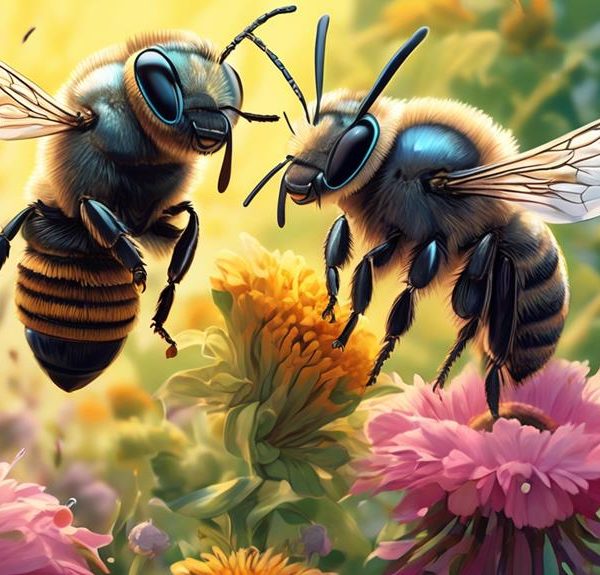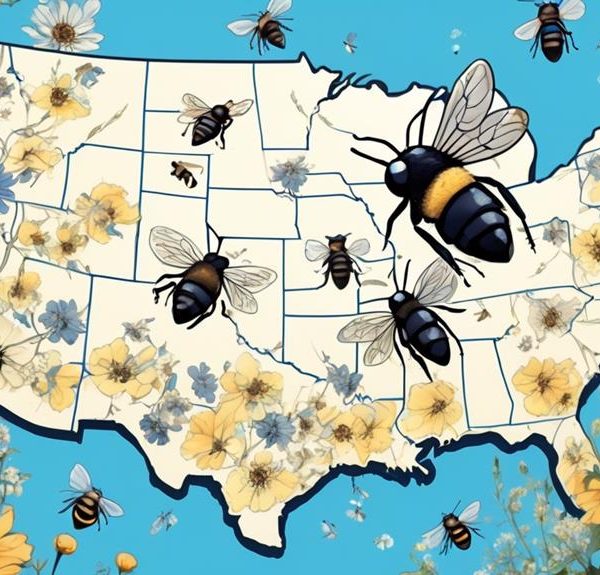Yearning to learn about mason bees in Florida? Delve into the intriguing world of these diligent pollinators and uncover some surprising facts.
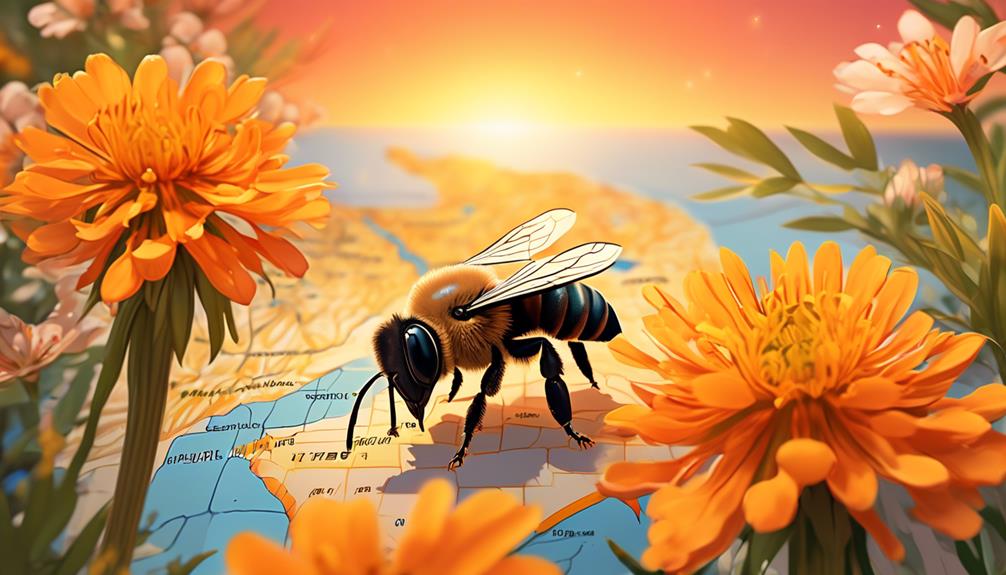
Are Mason Bees Native to Florida?
If you've ever watched a bee expertly navigate a field of flowers, you'd know it's akin to a well-choreographed ballet. Each movement, seemingly insignificant, contributes to the grand masterpiece – the pollination process.
For most, the honeybee immediately pops to mind, but there's another diligent pollinator that deserves your attention – the mason bee.
Now, you may be wondering, are these productive critters native to Florida? Well, let's embark on this fascinating investigative journey together, and trust me, the findings may surprise you.
Key Takeaways
- Mason Bees are not native to Florida, but they have established a significant presence in the state's diverse habitats.
- Mason Bees are highly effective pollinators, surpassing honeybees in their ability to pollinate flowers.
- Mason Bees contribute to the pollination of various plant species in Florida, promoting biodiversity and enhancing plant genetic diversity.
- Mason Bees play a crucial role in maintaining ecological balance by controlling pests and supporting the agricultural economy.
Understanding Mason Bees
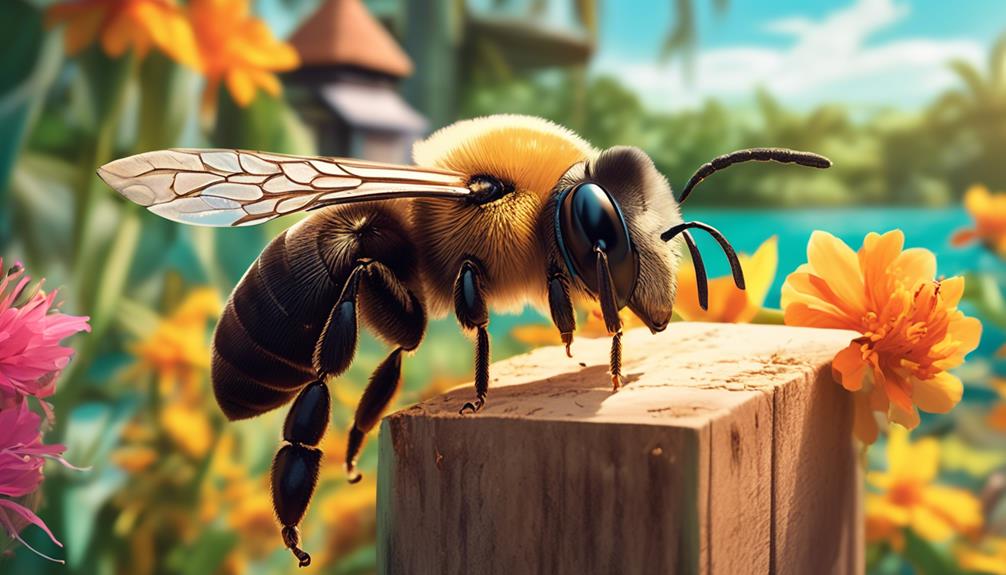
In order to fully appreciate the role of Mason Bees in Florida's ecosystem, it's essential to understand their unique characteristics, lifecycle, and behaviors. Unlike honeybees, which live in large colonies, Mason Bees are solitary creatures. They're named for their habit of using mud or other 'masonry' products to construct their nests in small cracks or holes.
Mason Bees' life cycle begins in the spring when the female emerges from her overwintering chamber, mates, and begins to construct a nest. She creates a series of cells, each containing an egg and a supply of pollen for the emerging larva to feed on. Once a cell is complete, she seals it with mud and moves on to the next. This cycle continues until she dies in late summer.
These bees are gentle and rarely sting, making them excellent neighbors for humans. Their industrious nature and efficient pollination make them a crucial part of Florida's ecosystem. Understanding these behaviors and characteristics allows you to appreciate the invaluable role they play.
Mason Bees: Origin and Habitat
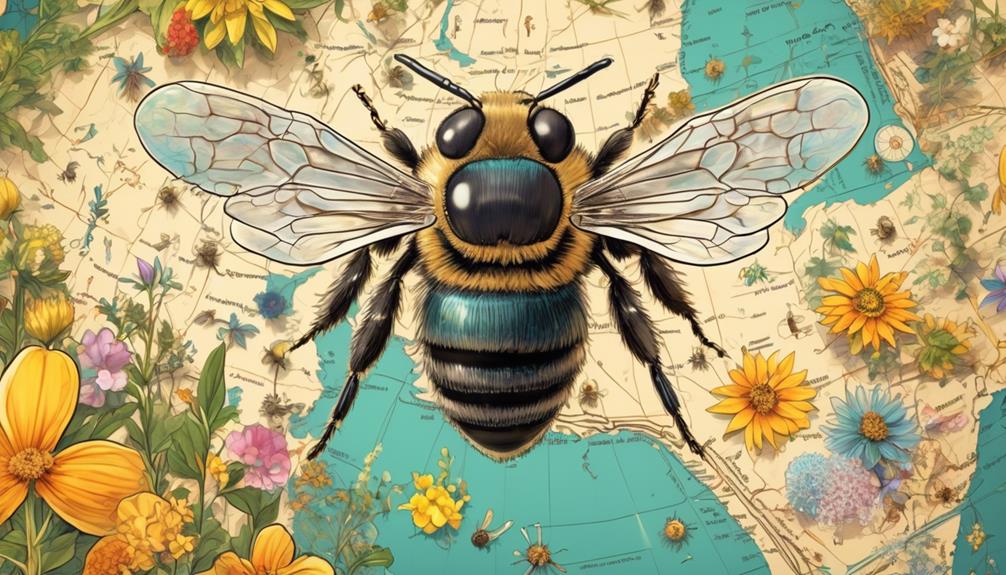
While you're appreciating the role Mason Bees play in our ecosystem, it's also interesting to consider their origins and the habitats they prefer. Mason Bees, named for their masonry-like nesting behavior, are solitary bees found in a variety of climates and locations around the world. Their exact origin isn't clear, but their wide distribution suggests they've been around for quite some time.
These bees have a preference for temperate environments, although they've been observed in subtropical and tropical areas too. Mason Bees typically nest in pre-existing cavities like hollow stems or holes in wood, which they line with mud—hence their name. They're not choosy about where these cavities are located, so you may find them in urban gardens, woodlands, meadows, or agricultural landscapes.
In Florida, Mason Bees aren't as common as the more familiar honey bees or bumblebees, but they're still present. They've adapted well to the local climate and flora, and you can often spot them in habitats with a mix of trees, shrubs, and open areas. Despite their solitary nature, Mason Bees play a crucial role in pollinating plants, making them an essential part of Florida's diverse ecosystem.
Mason Bees in the United States
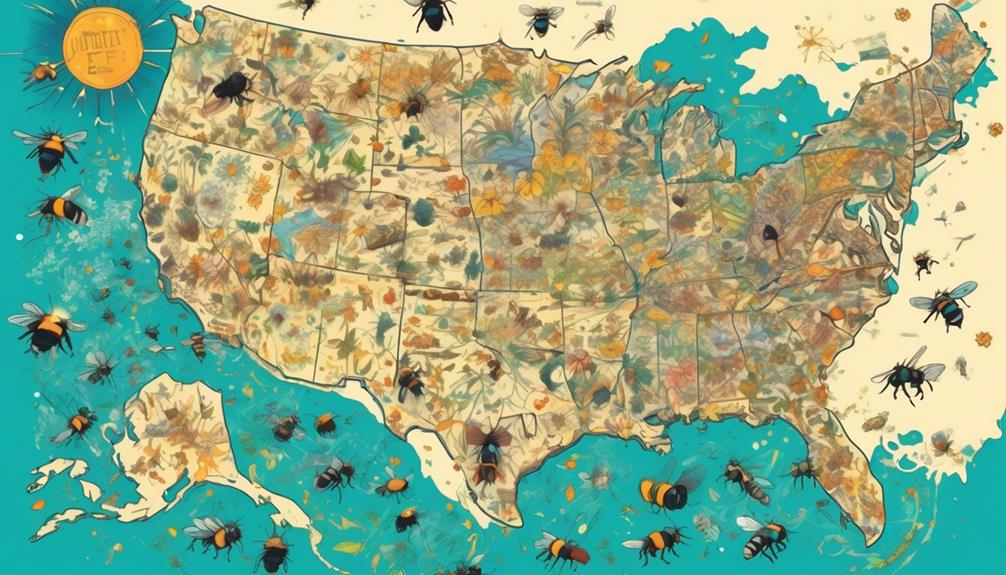
Across the United States, you'll find Mason Bees flourishing in diverse climates and environments, playing a vital role in the nation's pollination process. These bees are not necessarily native to all regions, but they adapt effectively, showcasing impressive resilience. The adaptability of Mason Bees is a testament to their importance in maintaining ecological balance.
The table below illustrates the distribution of Mason Bees in the United States:
Region | Presence of Mason Bees |
|---|---|
Northeast | Abundant |
Southeast | Moderate |
Midwest | Abundant |
West | Abundant |
Even though Mason Bees show a moderate presence in Southeast regions, including Florida, they're still vital to the local ecosystems. These bees are solitary, not living in hives like honeybees. This solitary nature contributes to their survival, as it reduces their susceptibility to diseases that can wipe out entire colonies.
You'll be fascinated to know that Mason Bees, despite their solitary nature, are highly effective pollinators. They're known to pollinate more flowers in a single day than honeybees, making them crucial for the pollination of crops and wild plants in the U.S. As a result, they impact both our food supply and the overall health of our ecosystems.
Mason Bees' Existence in Florida
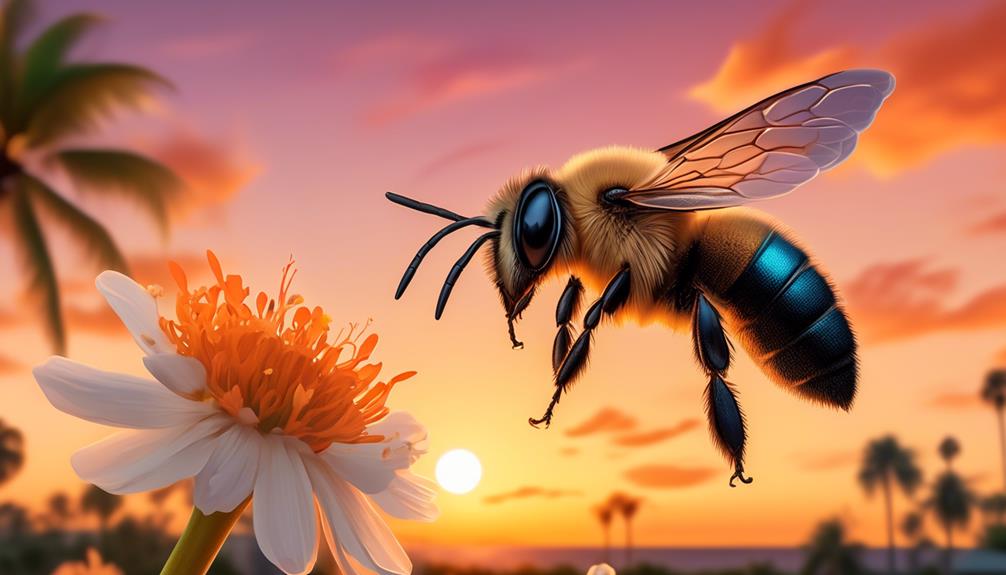
Shifting our focus to Florida, you'll find that Mason Bees, despite their moderate presence, have carved out a significant ecological niche within the state's diverse habitats. These solitary bees, known for their uniquely industrious behavior, play a vital role in pollination, aiding in the reproduction of various plants and contributing to biodiversity.
You'll notice Mason Bees in urban gardens, agricultural fields, and even undisturbed wilderness areas, where they adapt to native flora. They're particularly drawn to tubular, nectar-rich flowers, making them crucial for the survival of certain plant species.
Scientific research shows that Mason Bees, though not as plentiful as honeybees, are more efficient pollinators. They're equipped with hairy bodies that pick up pollen easily, ensuring that more flowers are pollinated during their foraging trips.
However, Mason Bees' existence in Florida isn't without challenges. Habitat destruction, pesticides, and climate change pose significant threats to their survival. Efforts are ongoing to monitor their population, study their behavior, and implement conservation strategies.
Impact of Mason Bees in Florida
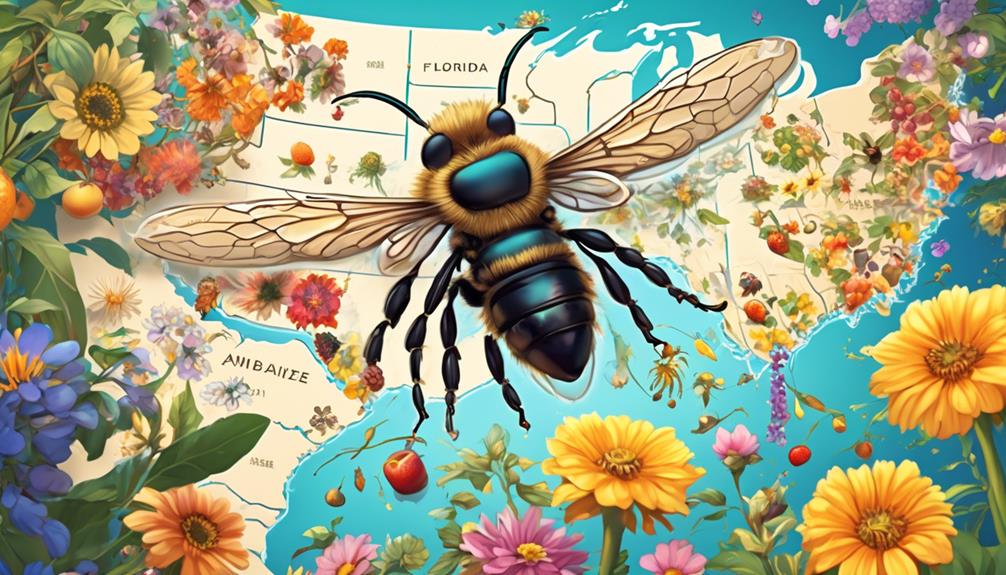
Despite their moderate numbers, the impact of Mason Bees on Florida's ecosystem is substantial, significantly contributing to the pollination of various plant species and promoting biodiversity. Their industrious nature makes them efficient pollinators, often more effective than their honeybee counterparts. They're particularly adept at cross-pollination, which increases genetic diversity in plant populations, helping them to withstand disease, pests, and changing climate conditions.
To further illustrate the impact of Mason Bees, let's delve into a quick table:
Activity | Impact on Ecosystem | Impact on Human Life |
|---|---|---|
Pollination | Promotes biodiversity | Supports agriculture |
Cross-Pollination | Enhances plant genetic diversity | Ensures crop variety |
Population Control of Pests | Maintains ecological balance | Reduces crop damage |
You see, Mason Bees are not just important for the natural ecosystem, but also for our agricultural systems. They play a crucial role in fertilizing flowers when collecting pollen and nectar for their offspring. Their presence can improve the yield and quality of crops, directly impacting agricultural economy. So, while they may not be native to Florida, their impact is undeniable and significant.
Conclusion
So, are mason bees native to Florida? Yes, indeed they are.
These busy pollinators have been buzzing around this region for countless years. Their presence has a significant impact on the ecosystem, helping to pollinate various plants and crops.
So, not only are they native, but they're also vital. It's our responsibility to ensure their environment is protected, allowing them to continue their crucial work in Florida's diverse and thriving ecosystem.

